Premium Only Content
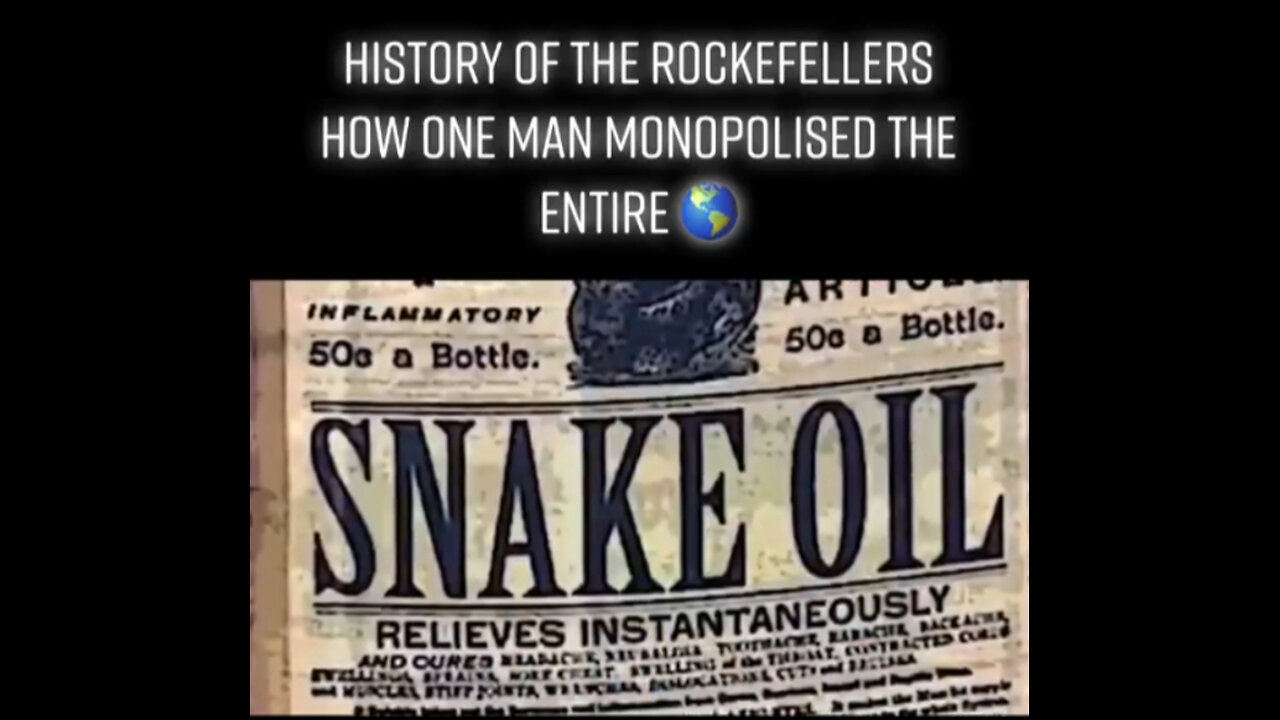
John D. Rockefeller and the Foundations of Modern Influence: From Big Oil to Education and Beyond
John D. Rockefeller is often remembered as a titan of industry, the architect of America’s oil empire, and the world’s first billionaire. However, his influence reaches far beyond oil, penetrating education, history, healthcare, and government. Born into an unconventional family, with a father known as “Devil Bill,” Rockefeller’s journey to immense wealth and power was as much a product of his environment as it was his own ambition. By examining his legacy, from the manipulation of oil markets to the restructuring of American education, we gain insight into how one man laid the groundwork for modern power structures—and how his reach still influences our lives today.
1. A Shaped Mindset: The Influence of “Devil Bill”
Rockefeller’s father, William “Devil Bill” Rockefeller, was a figure steeped in controversy. A known con artist and snake oil salesman, Devil Bill allegedly maintained multiple identities to evade the law and manipulated those around him, including his family. He was famously quoted saying, “I cheat my boys every day. I want to make them sharp.” Growing up under a father with such a worldview shaped John D. Rockefeller, instilling in him a distrustful, fiercely competitive nature. This upbringing, rooted in cunning and ruthlessness, may have contributed to his relentless pursuit of wealth and power.
Unlike the robber barons who simply amassed fortunes, Rockefeller’s approach was unique—he used wealth as a tool to assert control over institutions and influence society. His early life forged a perspective that would later shape the monopolistic practices of Standard Oil, the strategic takeovers of the educational system, and his method of legacy-building through foundations.
2. The Rise and Fall of Standard Oil: Wealth Beyond Monopoly
Rockefeller’s journey to wealth began with the foundation of Standard Oil, a company that quickly came to dominate the oil industry in the late 19th century. Standard Oil’s approach wasn’t just about producing oil; it was about controlling every aspect of the supply chain. Rockefeller ruthlessly absorbed competitors and manipulated transport costs, achieving what was then the most powerful monopoly in American history.
After Standard Oil was broken up by antitrust legislation in 1911, the pieces did not diminish Rockefeller’s wealth—they magnified it. Each subsidiary grew independently, and Rockefeller retained substantial shares in each, making him wealthier than ever. The dismantling of his monopoly didn’t limit his power but instead gave him the capital to influence society at an even greater scale. He turned his attention to molding public institutions, beginning with the American education system.
3. Reshaping American Education: Training a Workforce, Not Free Thinkers
With wealth secured, Rockefeller saw an opportunity to shape the American education system to suit the needs of industry. The Rockefeller Foundation strategically funded universities, research programs, and public schools, subtly embedding an agenda. Unlike earlier educational models designed to foster independent thinkers, the “Rockefeller model” aimed to produce a workforce disciplined enough to fulfill industrial roles but not necessarily empowered to challenge authority or think critically about societal structures.
One of his most notable projects was the General Education Board, which Rockefeller founded in 1903. The board aimed to reform public education, particularly in rural areas. Although it improved access to education, critics argue that the board’s goals went beyond altruism. By promoting a standardized, hierarchical education system, Rockefeller’s influence ensured that generations of Americans were educated within a framework designed to sustain the industrial workforce, with emphasis on obedience over creativity.
4. Influence Over History: Controlling the Narrative
Beyond education, Rockefeller wielded influence over the telling of history itself. He assembled historians to craft versions of events that favored industrialization and the role of wealthy elites in “building” America. Historical narratives are never neutral, and Rockefeller’s involvement ensured that generations of students would grow up with perspectives that supported capitalism, corporate influence, and elite power structures as central pillars of American progress.
This narrative control extended into popular culture, where the concept of the “self-made man” was often glorified. By highlighting select aspects of his own life while downplaying the exploitative methods used to build his empire, Rockefeller reinforced the notion that wealth is the ultimate measure of success, regardless of the means by which it is achieved.
5. Establishing a Legacy: Medicine and the Healthcare Industry
In the early 20th century, Rockefeller turned his attention to medicine, another avenue to influence public health and control medical education. He helped fund the Flexner Report of 1910, which transformed American medical education by closing down many traditional and holistic medical schools. This shift led to a Western, pharmaceutical-based approach, as Rockefeller funded institutions promoting allopathic medicine, which prioritizes drugs and surgery over preventive and holistic methods.
The consequences of this influence remain evident today, as the healthcare system in the U.S. is predominantly reliant on pharmaceutical treatments, an approach that generates immense profits for the pharmaceutical industry. By controlling medical education and focusing on pharmaceuticals, Rockefeller left a lasting impact on healthcare, creating a model that benefits the industry’s elite more than the general public.
6. The Rockefeller and Bush Connection: Foundations of American Power
Rockefeller’s influence extended into the corridors of government, where his family’s allies held significant power. The Bush family, for example, shares historical ties with the Rockefellers. Prescott Bush, George H.W. Bush’s father, was closely associated with Rockefeller interests and played a role in shaping the CIA, one of the most powerful intelligence agencies globally. The connection between these powerful families symbolizes an ongoing legacy of influence, as both Rockefellers and Bushes have played roles in shaping foreign policy, corporate power, and global intelligence networks.
These ties also suggest that the concentration of power in America isn’t solely economic; it’s also dynastic. By creating alliances and perpetuating wealth and influence across generations, these families ensured that their values and agendas could continue shaping society long after their founding members passed away.
Conclusion: A Legacy That Shapes Our World Today
John D. Rockefeller’s life reveals more than a tale of rags-to-riches; it’s a story of calculated influence over institutions, society, and future generations. Through Standard Oil, Rockefeller reshaped the economy. Through education reform, he engineered a compliant workforce. Through the manipulation of healthcare, he redirected medicine’s focus toward pharmaceuticals. And through his alliances with powerful families and political interests, he helped establish a framework of American power that endures today.
Rockefeller’s influence raises questions about the true nature of power and how it can extend beyond financial wealth to shape ideologies, beliefs, and societal structures. His legacy, woven into the fabric of American education, medicine, and government, illustrates how the pursuit of control—disguised as philanthropy—can alter the course of history, leaving impacts that reach well into the present day.
-
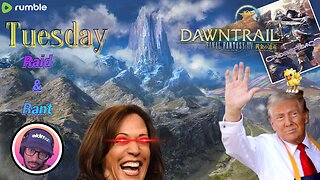 8:02:46
8:02:46
FusedAegisTV
9 hours ago『AST lvl 100』Tuesday Raid & Rant | Final Fantasy XIV | Patch 7.1 Day of Reckoning!
60.3K2 -
 59:17
59:17
Matt Kohrs
10 hours agoRumble's Q3 Recap & What's Next w/ CEO Chris Pavlovski
82.9K30 -
 1:43:47
1:43:47
Adam Does Movies
14 hours ago $22.81 earnedGladiator II Early Reviews + Tom Cruise Stans Glen Powell + Freddy Krueger - Movie News LIVE!
73.8K5 -
 2:24:03
2:24:03
WeAreChange
10 hours agoTrump Creates Department Of Government Efficiency With Elon And Vivek!
134K61 -
 2:10:32
2:10:32
Slightly Offensive
12 hours ago $26.93 earnedGET READY: Civil Unrests ERUPTS As Trump Resistance 2.0 EMERGES
72.1K52 -
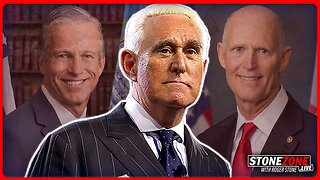 59:40
59:40
The StoneZONE with Roger Stone
8 hours agoShowdown in the Republican US Senate Caucus - RINOs Seek to Undermine Trump | The StoneZONE
70.3K45 -
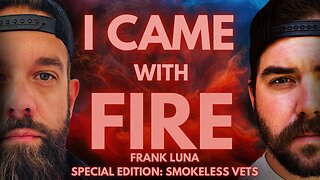 1:26:29
1:26:29
I_Came_With_Fire_Podcast
13 hours agoSpecial Episode: Frank Luna with Smokeless Vets
43.8K3 -
 4:16:31
4:16:31
Tundra Gaming Live
9 hours ago $1.59 earnedFormer Air Force Maintainer (Weapons) Hits The Grind For The F-16c
29.8K -
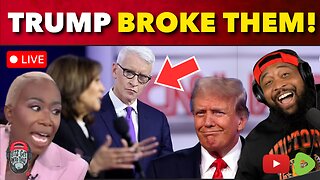 1:07:06
1:07:06
The Officer Tatum
10 hours agoLIVE MSNBC, CNN IMPLODE As Trump BUILDS DREAM TEAM!
92K192 -
 17:42
17:42
DeVory Darkins
2 days agoCNN Dana Bash LOSES HER MIND After BRUTAL Reality Check
59.9K97